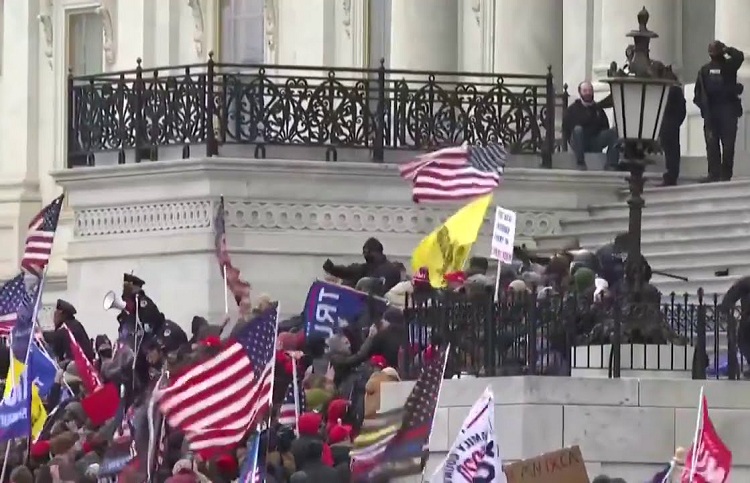The Diplomat
The European Union keeps Juan Guaidó as interlocutor in Venezuela, but avoids referring to him as the president in charge of that country, after last Thuesday was constituted the National Assembly that emerged from the elections held last December 6, whose results are not recognized by Brussels.
Yesterday, the EU High Representative for the Common Foreign and Security Policy, Josep Borrell, issued a statement in which he reflects the position of the Twenty-Seven, which shows a certain withdrawal in relation to the support given in previous occasions to Guaidó.
The EU does not allude to the status of the opposition leader and president of the National Assembly elected in 2015 in a democratic way and with a majority against Chavismo.
Now that his term expired and the Chavismo-led National Assembly has been formed, the EU has signaled its intention to work with Guaidó and other Venezuelan leaders to achieve a peaceful solution to the crisis in Venezuela.
In his statement, Borrell assures that the EU will keep its contacts “with all political actors and civil society to return democracy to Venezuela, including in particular Juan Guaidó and other representatives of the outgoing National Assembly”.
The communiqué also affirms that the EU regrets “deeply” that the National Assembly assumed its mandate this Tuesday after elections that were not democratic. Likewise, it has reiterated its bet for an inclusive national dialogue that will allow a political solution to the crisis in Venezuela, which is going through the celebration of local, legislative and presidential elections.
In December, the 27 decided not to recognize the result of the legislative elections in Venezuela, considering that they did not comply with the “minimum” international standards and gave themselves a month to define their relationship with the National Assembly.
Regarding the recognition of Guaidó as the president in charge of Venezuela, community sources indicate that it is the member states who may do so.
Of the 27, only Italy and Cyprus did not do so when Guaidó declared himself president in charge of Venezuela. No country has expressed its intention to change its position.
The Spanish government defends a “consensual” position within the EU in view of the new scenario that is opening up in the country, while the PP and Ciudadanos demand that the Executive maintain its recognition of Guaidó and try to make this the position of the EU.
In spite of the certain ambiguous tone of Borrrell’s communiqué, Juan Guaidó yesterday expressed his gratitude to the EU for the “support” given to “the cause of freedom in Venezuela” by recognizing the opposition National Assembly as “legitimate” in the face of the Chavista Assembly.
In a communiqué from the National Communication Centre, which acts as Guaidó’s press office, the oppositionist highlights that the EU has “rejected the electoral fraud perpetrated by the dictatorship” and has praised that it does not consider that “its result is representative of the democratic will of the Venezuelan people”. He demanded “that the usurpers guarantee the respect and protection of Human Rights” in the country and asked for “acts of repression, particularly against members of the opposition”, cease.







